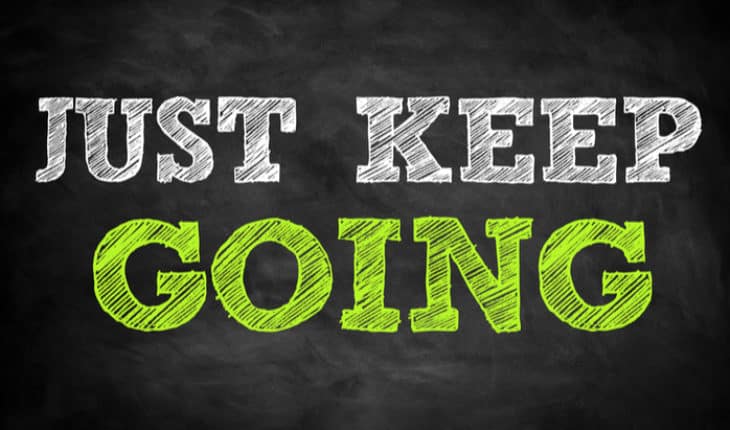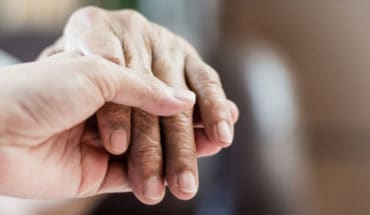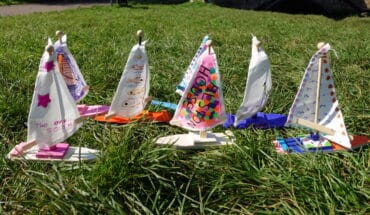I still hope for a cure for my cancer. I know it is unlikely, having had tumours identified in both lungs and my liver. No treatments that are currently available or in the pipeline offer a cure, only the possibility of keeping the tumours at bay for longer. Of course that is highly valuable in itself, but it isn’t a cure. Even so, I mostly feel pretty normal, people tell me I look well, and I continue to walk, cycle (although less than I used to), and work full time. So the mismatch between how I appear and the advanced stage of my cancer, with the need to regularly drain over a litre of fluid from my chest which looks remarkably like my favourite IPA, is surreal.
For the most part I have accepted the reality of the position. I have thought about what might happen when the cancer progresses and tried to plan sensibly for when treatment options run out. But I still sometimes wake up feeling quite well, thinking and hoping that a cure might appear. I suspect most people with a “treatable but not curable” cancer find the same. I hold on to the small uncertainty that a cure may be possible as it gives me hope.
For the most part I have accepted the reality of the position. I have thought about what might happen when the cancer progresses and tried to plan sensibly for when treatment options run out. But I still sometimes wake up feeling quite well, thinking and hoping that a cure might appear. I suspect most people with a “treatable but not curable” cancer find the same. I hold on to the small uncertainty that a cure may be possible as it gives me hope.
When the reality hits that a cure is not available my hopes centre instead on the next best option, that each phase of treatment will suppress my tumours for as long as possible. I knew that my first treatment, a drug targeting specific genes in my tumours, suppresses them on average for 12 months. But there is uncertainty and for some people the suppression is for much longer. The uncertainty allowed me to hope that I would be one of those people, so I made sure that I stayed mentally positive and physically fit as those are under my control and make it more likely.
In the event it turned out that I am not one of those people and after almost exactly 12 months I started getting more out of breath when cycling (a good indicator for me) and the scans indeed showed the cancer starting to progress. Unexpectedly I found something else to hope for. I became aware of uncertainty about whether the new tumour nodules could be treated with radiotherapy whilst I stayed longer on the original treatment which may continue to suppress the tumours elsewhere. Because it is uncertain whether this approach is worthwhile it is the subject of a research trial. I hoped that I would be eligible for the study, have the radiotherapy and stay for a while longer on the original treatment.
Wanting to be in the research trial wasn’t entirely logical. There are plenty of arguments to say that when one treatment starts to fail then you should get onto the next one as quickly as possible and not doing so could let the cancer get further out of control. My wife Gill was worried that the longer I spent thinking about the trial, the more chance the cancer had to start spreading elsewhere. But hope is a strong driving force, and I really wanted the radiotherapy.
Handling uncertainty whilst being considered for a research trial was surprisingly difficult. I thought the radiotherapy made sense but had to accept that the overall approach could do harm rather than good. All I really wanted was for someone to tell me that this would help and arrange it for me but at least the uncertainty allowed me to hope that I might gain some months before changing to the next drug.
Handling uncertainty whilst being considered for a research trial was surprisingly difficult. I thought the radiotherapy made sense but had to accept that the overall approach could do harm rather than good. All I really wanted was for someone to tell me that this would help and arrange it for me but at least the uncertainty allowed me to hope that I might gain some months before changing to the next drug.
Much more difficult was the uncertainty that, if I was suitable for the trial, there was a random process to decide whether I would get radiotherapy or be in a comparison group of people not getting this treatment. I understood completely that the trial cannot tell whether the treatment works unless it compares people who receive the radiotherapy with similar people who don’t. This is the basis of good research which I have supported in many different ways throughout my career. But finding myself as a patient where the decision on my treatment would be entirely out of my control was difficult. It was a surprising relief when it turned out my cancer was progressing in too many places, I was not eligible for the trial, and the advice was clear that I should move onto the next treatment without any further delay.
Making sense of this isn’t easy as I still want to be considered for research trials that might help me and give new knowledge for treating people in future. What I concluded was that uncertainty about how well or how long a treatment will work at least allows me to hope for the best possible outcome. On the other hand uncertainty because something is taken out of my control makes me worry and feel helpless.
There is no fault here. The research is incredibly important and the researchers are doing vital work. The excellent treatments I have now would not be available except for people taking part in similar studies in the past and if a cure does arise it will only be because of similar research taking place now. I do know that some research experts are looking into different methods which can adapt as a research study progresses and which might allow individuals, their oncologists and researchers to decide jointly on whether an individual is likely to benefit, and then collect information about them and about those who do not to have the treatment, to still make valid comparisons. I hope this approach works, if so it will reduce uncertainty that is unhelpful.
The longer I live with a “treatable but not curable” cancer the more I realise how much good there is in life that I can focus on today, this week, this month. The uncertainty that treatments might work for much longer than expected helps me to keep that focus. It allows me to “keep calm and carry on”.
- And Life Goes On - 18th November 2019
- Paul Cosford – I still hope for a cure for my cancer - 3rd March 2019
- Paul Cosford: Meeting my palliative care team - 24th July 2018








Thank you for your blogs on yourNSCLC here on this website; your thoughts and feelings have been very helpful in many ways for me as I also have non-smoking NSCLC. I wonder what specific type you have and specifically which drugs you have tried. I have stage 4 adenocarcinoma NSCLC– EGFR exon deletion in left lung that had metastasized to my pleural cavity by the time I was finally diagnosed in 2015. “Inoperable and incurable” label, but “manageable”for a while. Erlotinib for three and a half years and now mutated to T790. I am now considering other options and hence… Read more »